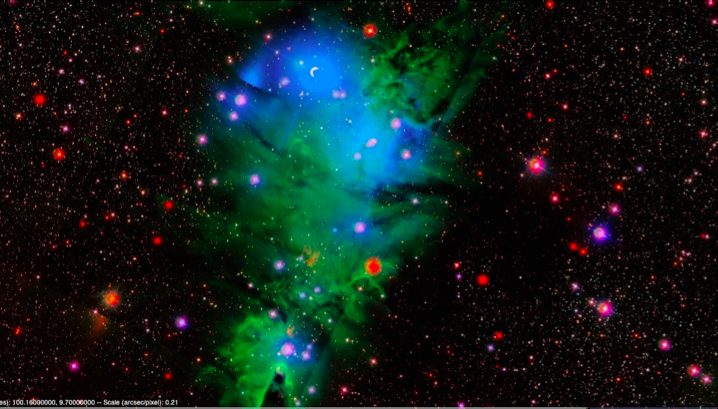Astroshelf: Panning and Zooming the Observable Universe
January 1st, 2010 - Ongoing
Categories: Applications, Visualization

About
The growing onslaught of astronomical data available presents a great challenge. Astronomy lacks an easy-to-use and scalable way to collect and distribute expert information about objects from datasets of tens of thousands to billions of individual events and objects. Over the next decade, the amount of information available to the typical astronomer will grow by two orders of magnitude both in raw data size and in the number of objects. This project pursues three research directions, each of which has the potential to transform how astronomers interface with large datasets:
1) a visual scalable annotation framework to enable linking of observations to specific experiments, models, or other observations;
(2) a continuous workflow enactment system that would support automated reasoning in the presence of uncertainty; and >
(3) a computational framework for interactively analyzing astronomical datasets, allowing the construction and testing of hypotheses.
Project plans include the design and development of a prototype system (AstroShelf) and its evaluation using two timely science programs:
(a) Using multi-wavelength data from the DEEP3 and AEGIS surveys, develop methods to incorporate images and catalogs from disparate datasets, allowing us to study how the demographics of galaxies have changed over the last 8 billion years.
(b) Using properties of time-variable events found by the Pan-STARRS survey, develop techniques for rapid classification of transient phenomena, dissemination of their properties, and incorporation of feedback from follow-up observations.
AstroShelf will include a publicly accessible, flexible annotation system for public datasets, which will also lend itself to outreach efforts involving annotations by the general public. This project\'s significant impact is the ability to share information and expert opinions quickly and widely, about each new observation or event, fundamentally changing our ability to learn about the Universe; such functionality can also be applied in support of other scientific domains.